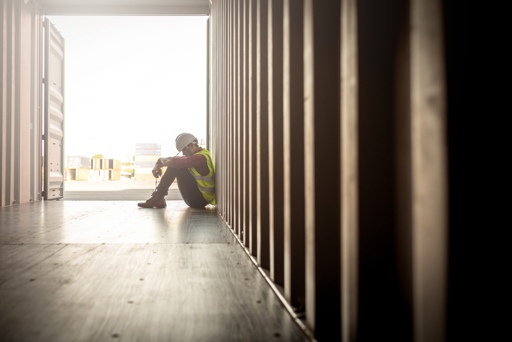Justin Azbill was tired. In September 2020, as the stresses from his construction job became too much to handle, Azbill contemplated taking his own life.
Azbill was working as a director of safety for a large-scale general contractor in Massachusetts and had recently taken on an additional role as a COVID-19 czar. The pressure of pandemic uncertainty made his duties difficult and brought forward heated discussions; it was Azbill’s job to put out those fires. He was used to working long hours, but now he was battling through 100-hour work weeks. He was burned out and wasn’t sleeping.
“ I never got a break,” Azbill said. “I would’ve done anything for a pause button.”
Circumstances like Azbill’s are common in the construction industry. Recent research has found that construction workers face a disproportionate risk for suicide compared with workers in other industries. About 5,095 male construction workers in the U.S. died by suicide in 2023, according to the Center for Construction Research and Training. Almost a fifth of deaths by suicide with a reported industry code in 2023 were tied to construction, despite construction workers only making up about 7% of the workforce in 2023.
Now, industry advocates are pushing for much-needed change.
“We are making slow and steady improvements to worker mental health,” said Mandi Kime, a co-chair of the Associated General Contractors of America (AGC)’s Mental Health and Suicide Prevention Task Force.
The task force was created in January 2022 and has coordinated efforts to tackle the crisis by raising awareness and putting out much-needed resources. That includes an online, self-paced training course for supervisors about promoting psychological safety on the job and intervening during a mental health crisis, according to Kime. The resources also provide advice on avoiding any legal or human resources pitfalls when doing this work.


